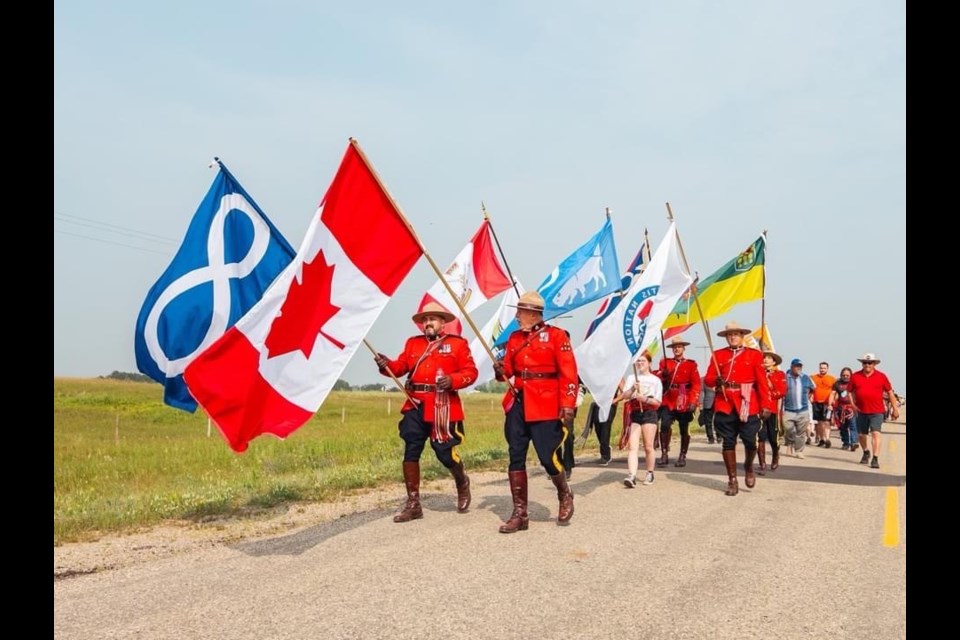Among the more than 40,000 people at the Back to Batoche Days festival on July 21 were a busload of Moose Javians, who attended the festival to celebrate their Métis heritage and the history of their people on the land that is now part of Canada.
The Back to Batoche Days festival commemorates the 1885 Battle of Batoche, a fight that marked the last armed resistance of the Métis Nation to encroachment by Europeans.
The Métis are often called 'children of the fur trade' and are descended from marriages between First Nations peoples and Europeans. They formed their own mixed-race cultural identity, including the Michif language, the jigging dance, foods, beading styles, customs, and more.
"The Batoche site was, of course, the site of the 1885 Métis rebellion that took place in Northern Saskatchewan," Darrell Hawman, president of Moose Jaw's Métis Local No. 160, told the Moose Jaw Express for a previous article. "It was a battle for the rights of the Métis to their land and to be able to practice their culture. The (Canadians) came out with their army and unfortunately the Métis were defeated. And it's a National Historic Site, and over the years the Métis have built up the fairgrounds there.
"It's an annual event where the Métis Nation gathers to celebrate our culture and traditions."
Hawman said this year's Batoche festival, which set attendance records, was very well organized and had plenty of activities.
"There was lots to do," Hawman said. "I must say, I was very impressed with Métis Nation Saskatchewan. They did a great job of organizing and making sure there was lots of support on the ground. So, hats off to the provincial group. ... It was a very good trip."
Hawman's twin sister, Darlene Veroba, took her grandchildren along on the trip. She said it was a wonderful chance to connect more with her heritage and for her grandchildren to see where they come from.
"My mom had made a promise to her dad that she wouldn't talk about being Métis," Veroba said. "We always heard comments like, 'Oh my God, you look (Indigenous),' but my mom never said anything. And then all of a sudden, she started telling us that her mother was born on a reserve in Montana, but she still didn't go into details."
Hawman has since become an expert on Métis history and an avid advocate for Métis culture, and their children and grandchildren are in no doubt about their heritage.
"Almost all my children have their Métis cards, and they're proud about it," Veroba said. At Batoche, the family visited all the historic sites — the grandchildren were wide-eyed at the bullet holes still in the walls of the church where the Métis made their last stand.
"They found out that we tried to fight for a place in Canada, as Métis," she went on. "And there were food trucks and bannock ... and they had bands playing, and there was a dance floor where people were jigging, and it was all very interesting and we watched it all together. It was a beautiful day. I think everyone should go to Batoche."




